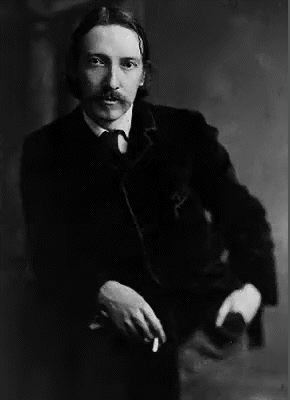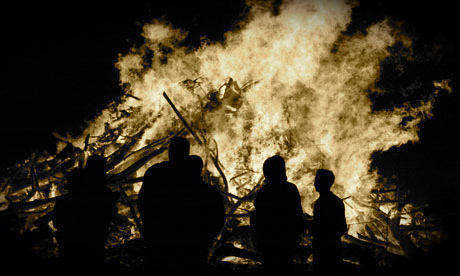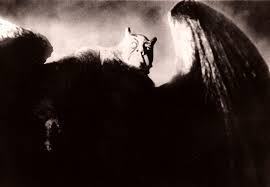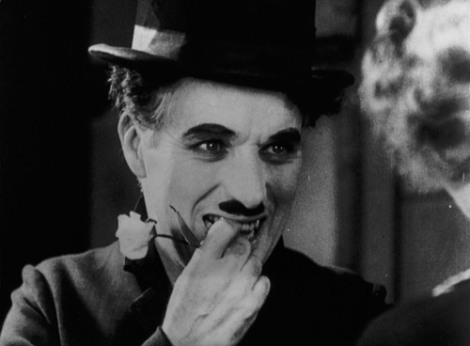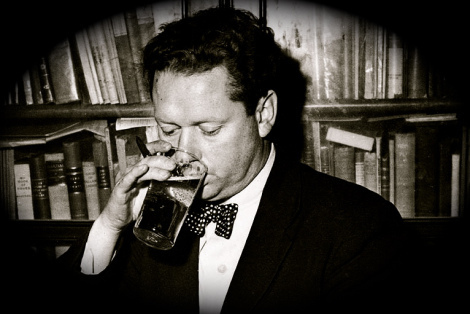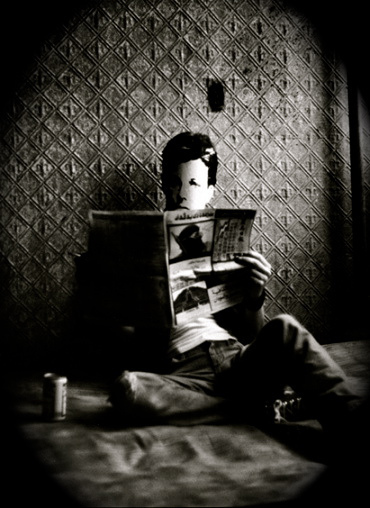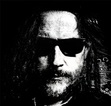R.M. Engelhardt's Blog: Burn Brightly, page 34
April 28, 2013
“The saints are the sinners wh...
April 27, 2013
simplicity …
MEMO
Build fire and read
the future in smoke
Carry out ash and
scatter over head
Be sure
not to look back
Try out
the art of metamorphosis
Paint face
with cinnebar
As a sign
of grief
~ W.G. Sebald


April 26, 2013
THE DAY GOD BECAME POPULAR
We were hanging out drinking a few shots with
that asshole Mephistopheles.
He (as usual) was trying to boug a few drinks, and (as
usual) we..ignored him. At work as usual it was one
long fucking day. I was stuck putting up the sequoia’s
and disagreed; God liked red, I..liked black. And
somehow the boss (I won’t use her real name) told us
that our work was getting “sloppy’. Too many species,
she said, too many ferns, something like that. You are
always spending way too much time arguing and I’ll
have to let one of you go, the temporal mental bitch
said. “Fine!” I said, “I quit!” Buddha, Muhammad and a
few others were already gone and had decided to start
their own companies. And me, well I was just tired of
all of the insipid & corporate shit where the motto
was “Heaven we care”. And this action left God whom I
always thought to be a pretty decent kid in general,
to run the factory. And for a while we kept in touch.
“How’s it goin?” I’d ask and he’d say “Great, but I’m
really busy” “We’ll get together for a beer sometime,
ok?” Ok. But more & more the silence increased. Never
a reply back, never a how are you and never a word through the
psychic dimensional thought. Eventually I found out
that God had taken over and that he had been bumped
up. It I thought. He always was more of the
corporate type than me.
Its been awhile now and I haven’t heard from him in a
few eons. I heard that he never really recovered from
that incident with his kid. Stay away from beautiful
women, we told him, stop trying to be a hero. But he,
never listened and almost lost everything. Recently I
transformed myself into a man and I caught a glimpse
of him in a bar in NY City. Timothy McVeigh had just
blown up the federal building with children in it and
God was sitting drunk on a bar stool drinking red
wine. He was really fucked up and he had aged
something awful. “Bartender! Give me another fucking
glass!” he said. They kicked him out and he
disappeared stumbling into the night. I was saddened.
The firm is going under and he’s losing control, other
power hungry kids are creating technology & spirit
advances. God’s becoming an antique, but I know he
won’t retire. Me, well don’t worry about me. I’ll be
fine. These days I’m living as a cat owned by a girl
going thru a tough time. I know where I’m needed. And
even though no one remembers all of the work that I’ve
done its alright. The cycles of the universe go on
because love, redemption and faith never stop and
never die.
Oh and by the way, do you like coffee? Good!
That was
MY idea!
R.M. ENGELHARDT


“When I was young, the idea of an orgy was tremendously ...
“When I was young, the idea of an orgy was tremendously exciting. Charlie Chaplin once organized one in Hollywood for me and two Spanish friends, but when the three ravishing young women arrived from Pasadena, they immediately got into a tremendous argument over which one was going to get Chaplin, and in the end all three left in a huff.”
~ Luis Buñuel


April 25, 2013
Drinking Still The Demons …
“The idea that creative endeavor and mind-altering substances are entwined is one of the great pop-intellectual myths of our time. The four twentieth-century writers whose work is most responsible for it are probably Hemingway, Fitzgerald, Sherwood Anderson, and the poet Dylan Thomas. They are the writers who largely formed our vision of an existential English-speaking waste-land where people have been cut off from one another and live in an atmosphere of emotional strangulation and despair. These concepts are very familiar to most alcoholics; the common reaction to them is amusement. Substance-abusing writers are just substance abusers — common garden-variety drunks and druggies, in other words. Any claims that the drugs and alcohol are necessary to dull a finer sensibility are just the usual self-serving bullshit. I’ve heard alcoholic snowplow drivers make the same claim, that they drink to still the demons. It doesn’t matter if you’re James Jones, John Cheever, or a stewbum snoozing in Penn Station; for an addict, the right to the drink or drug of choice must be preserved at all costs. Hemingway and Fitzgerald didn’t drink because they were creative, alienated, or morally weak. They drank because it’s what alkies are wired up to do. Creative people probably do run a greater risk of alcoholism and addiction than those in some other jobs, but so what? We all look pretty much the same when we’re puking in the gutter.”
~ Stephen King. “On Writing”


War All The Time
“This is a war universe. War all the time. That is its nature. There may be other universes based on all sorts of other principles, but ours seems to be based on war and games. All games are basically hostile. Winners and losers. We see them all around us: the winners and the losers. The losers can oftentimes become winners, and the winners can very easily become losers. “
~ William S. Burroughs


April 23, 2013
What Does Punk Rock Have To Do With William Shakespeare?
 A musical culture began to take shape amid the unrest of Great Britain during the mid nineteen-seventies. With the emergence of bands like the Sex Pistols and the Clash, the punk rock movement sparked a nihilistic ethos and a new sound that would change the musical landscape forever. While the modern day use of the word ‘punk’ might suggest anarchistic youth, William Shakespeare used the term quite differently over four hundred years ago. So how did this word evolve from a derogatory term aimed at a woman to a derogatory term aimed at a young man?
A musical culture began to take shape amid the unrest of Great Britain during the mid nineteen-seventies. With the emergence of bands like the Sex Pistols and the Clash, the punk rock movement sparked a nihilistic ethos and a new sound that would change the musical landscape forever. While the modern day use of the word ‘punk’ might suggest anarchistic youth, William Shakespeare used the term quite differently over four hundred years ago. So how did this word evolve from a derogatory term aimed at a woman to a derogatory term aimed at a young man?
Although its exact etymology is not known, the term “punk” has survived numerous changes in meaning throughout the centuries. The first recorded use of the term (unknown origin) occurred in the early 1590s, with reference to a “prostitute, harlot.” The term “taffety punk,” a reference to “a well dressed whore,” appears in William Shakespeare’s All’s Well That Ends Well, penned between 1604 and 1605.
The Scottish, spunk, meaning “a spark,” is a 1530s reference to burning embers and ashes. A similar use of the word can be found in a 1618 account by native inhabitants of Virginia as a reference to overcooked corn: “Some of them, more thriftye then cleanly, doe burn the coare of the eare to powder, which they call ‘pungnough,’ mingling that in their meale, but yet never tasted well in bread or broath.” Native peoples throughout the Delaware region of the United States used the word ponk around this time to reference “rotten wood used as tinder.”
By 1896, and perhaps fueled by the “rotten” connotation to the term, punk had become synonymous with “something worthless” and “young criminal” — specifically in relation to a male youth. It is perhaps the latter definition that Dave Marsh had in mind when he coined the phrase “punk rock” in his May 1971 column featured in Creem magazine.


A Future for Poetry, 1937
By Marie Bullock
A Future for Poetry
A talk given by Mrs. Hugh Bullock at the Chautauqua Woman’s Club, Chautauqua, New York, on July 16, 1937
Ever since Mrs. Pennypacker’s invitation came asking me to speak at the Chautauqua Woman’s Club, Chautauqua has been foremost in anticipation in my mind. And now that I am here I find all my premonitions of loveliness and interest overwhelmingly come true.This is my first visit to Chautauqua. I have never seen any place quite like it. Since my arrival I have been making comparisons with those great artistic, musical and dramatic centers I know so well, Bayreuth, Salzburg, Stratford. Chautauqua is more than these. I find now that I want to add the spiritual fervor and deep emotion that I found at Oberammergau.Standing before you here in this beautiful Hall of Philosophy I am so deeply impressed with the surroundings, with the whole atmosphere, with the people I have met, with you, my audience, that my small ego senses its diminutiveness and feels even smaller.Who am I to come to you here in Chautauqua? What are my honors, my degrees, my human qualifications as well as my educational ones? The story is all too short. It came upon me suddenly when I was writing a few lines of biographical sketch of myself for you. It contained statements of Birth, Marriage, Motherhood. And that was practically all I might claim for my own.Am I humble, modest and retiring, as I should be from this description? Do I stand here, terrified, longing for all those courses in public speaking that I never took, for Dale Carnegie’s advice, for fluency, for expressiveness, for anything; but especially deep, dark oblivion?Strangely, no.It is my personal opinion that every human being has a purpose on this earth. A reason for being. Some are made aware early and some late. Some never at all. But still they serve their purpose. And that is why I am here. I bear a message for you. A message of such vital importance that my personal humility is gone. I want you to carry this message away with you, close to your hearts, into your worlds, when you go home from Chautauqua. Let us turn to poetry. Poetry was originally the reply to a crying need. It answered a practical question. The necessity for news. Minnesingers and troubadours on their long journeyings gave a lilt and a rhythm to their messages that made them easier to remember and to tell. Poetry grew with the times. It became the privilege of princes and courtiers and it sang of heroism and of love in all the royal courts of Europe. Poetry, besides chronicling beauty, has always painted the most vivid picture of its own times. Romantic or stark with facts, it has been the perfect description of the period it sought to depict or the age in which it was composed. And this is true of all countries and all times. A few scattered names will suffice to bring some specific examples, chosen along the centuries, to mind: Homer‘s Iliad and Odyssey.François Villon and Paris of the Middle Ages.Tennyson and the Court of King Arthur.Germany’s Goethe.The Heaven and Hell of Dante—perhaps we cannot be so sure of this, but at least the states of mind are accurate.Molière and the time of the Précieuses Ridicules.Omar Khayyam’s Rubaiyat.And to come closer to ourselves:Walt Whitman and the pioneer spirit of America.The World War—Rupert Brooke, Siegfried
Sassoon, Alan Sieger—”That there’s some corner of a foreign field that is forever England!”Carl Sandburg and the Age of Steel.This catalogue could go on indefinitely.Shall we be crude and demand of poetry something more than: “The best words in their best order,” as Coleridgesaid; something more than beauty, idealism and timelessness?Then let us ask poetry to portray us as we are, our times, our ways of life. Who but our poets can give these supreme word-pictures to our descendants? How shall these children of our children visualize our era if our poets are silent?Through the cold, factual lines of historians? The limited dimensions of painters, sculptors and musicians? The poet is all and more than these.They may know us for tall skyscrapers, for slim silhouettes and changing fashions of apparel, for syncopation and disturbing opinions on sex and marriage, for birth control and a new Supreme Court, for sit-down strikes and stand-up lunches. But who shall tell them of our souls, of the innermost heart and head of us, if our poets are stilled?lt follows that we should cultivate our poets. Permit their flowering to complete maturity. Allow no more Chattertons, or Poes, or Lindsays.”Seven wealthy towns contend for Homer dead,Through which the living Homer begged his bread!”Some people have been heard to say: “Why become wrought up over poetry being silenced in our generation? lt has withstood the buffetings of many years.”May I answer them at once, now?Do they need to be told of the practical-mindedness engulfing us today? How often do you find time in this hectic life to read poetry, and, shutting your eyes, dream those necessary dreams of beauty, and become enchanted with long vistas of thought that you may follow endlessly?How often is this possible for the housewife, the business man and woman, the teacher and the salesman in America today? Yet poetry has always been of vital importance. It has inspired many great men. It still does when they find time to pursue it.Newton D. Baker wrote me once: “All my life I have tried to save some part of my time for the inspiration which the poets give.”Earl Baldwin’s favorite poet was his cousin, Rudyard Kipling, from whom he received great inspiration and still does. Many of our outstanding characters in public life are known to care for poetry. Many more love it in secret.It is not all practical and unpoetical in other lands.May I become personal for just a moment?I have sat by the Rhine, eating Rhine salmon, sipping Rhine wine, listening to Wagner’s Tristan or Götterddämmerung. I have come home leisurely from flower markets early in the morning laden with multi-colored blossoms after hours of stillness in an Austrian wood. I have lain on my back in a French field by a trout stream while a nightingale sang in the forest.I tell you these things only to stress your realization of how little real living is being done in our country now. We have no time for such delicious things. Nor do we seem to have time to encourage the delight in and understanding of poetry amongst children in kindergarten and first grade as they do in European countries. The tiniest tots lisp long lines of poetry. Even more especially the young men and women of these lands—France, Germany, Japan, etc.—make time for the discussion and criticism of poetry, ancient and modern. Tell me; do you find inspiration in noisy drives on Sunday through crowded streets on the way to the country, where you must search for hours for a quiet picnic spot and end up between a trailer and a bus?Is there poetry in night-clubs?—and department stores?—and great, grinding factories?Our poet will tell you that there is human interest there, and that these scenes are typical of our times, but he cannot deny that this sort of existence does not create a public for the reading of his poems. His books of verse do not sell today. He must turn to prose to eke out an existence. Entirely aside from Art, he must live first, and also make a living for his family and dependents. He cannot do this under present circumstances by writingpoetry.Few people are aware of the plight of poets in the United States. You will be interested in the following statistics compiled by our organization two years ago:It was found that the half-dozen topmost artists—let me stress this, the half-dozen topmost artists—in painting, sculpture, reproductive music, architecture and prose were earning amounts that ran into high figures annually. Certainly into five figures, with some few world-known individuals actually earning a hundred thousand dollars or more a year. And these statistics are not of 1929.Now let us turn to poets. Publishers have advised us of figures that average as follows: the foremost American poets consider themselves fortunate if they can acquire a thousand dollars per year. Usually this amount is nearer six to eight hundred dollars, and means writing a new book of verse, selling poems to magazines and newspapers, plus a lecture tour or two.This is the appalling truth, as well as the fact that publishers won’t take a chance on poetry, especially that of new, unknown poets. You cannot blame them. Anyone would prefer a best-seller.It is also true that most papers and magazines pay forpoetry at the rate of twenty-five cents a line, or less; and buy sonnets or anything shorter to fill in a column space.Most horribly true it is that the fifty or so poetry journals in the United States that come to life every year, have a most precarious existence and die out before the year’s end from lack of subscriptions and funds. Even the best ones. The two or three that have withstood these circumstances by a miracle of leadership through the years are threatened now with similar discontinuance. And even these, in most cases, have not been able to afford paying their contributors.Why should poets be the only artists to give away their life-work?It were well to look abroad and see what is being done in other countries today. Besides the facts that I have mentioned in connection with children and the youth of various nations studying poetry in all its forms, there are certain great organizations to consider.In France, L’Académle Française; in Germany, the Goethe-Haus; in Italy, d’Annunzio’s Accademia, and in England, of course, there is the Poet Laureate as well as the Civil List, upon which we may find some of the most outstanding names in English literature, receiving a life annuity. I shall only mention these. You know them all so well.Besides all this, the poet abroad has a certain aura of honor about him. His name is spoken with awe; he is honored and admired publicly; his books are read and criticized frequently. He is revered and honored in his own country.We must realize this could not be so in a land of pioneers, of stolid business, of practicality and speed, where poetryappears to be out-of-date, unnecessary and superfluous. One cannot ask too much.However, today we are beginning to show an understanding for the needs of poetry in America. We have taken the first step. We have created The Academy of American Poets.Its machinery is simple and practical. It is suited to the times. It is logical for the day when the individual princely endowment is growing more and more impossible. I will give you a quick picture of its plan.The project was founded about two and a half years ago as a Membership Corporation incorporated in New York State.It has two principal purposes: first, to encourage and foster the work of American poets of outstanding merit; second, to discover new poetic genius wherever it may be in the United States.As the main part of this program, The Academy of American Poets plans to award Fellowships which carry a stipend of five thousand dollars for the term of one year.Like the European government grants and the Nobel Prize, these Fellowships are only awarded for the highest achievement. Moreover, only those American poets whose regular income does not exceed five thousand dollars a year are eligible. (Which, may I add, eliminates practically none!)The number of these Fellowships will be determined by the estimated income of a trust fund, of which the Guaranty Trust Company is Trustee, and for which The Academy of American Poets was organized to receive donations.A board of twelve Chancellors or judges, chosen for their high literary standing, will make the awards.A prefatory award for accomplishment was made this year to Edwin Markham, whose “Man with the Hoe” we all know so well.Amongst the outstanding sponsors of The Academy are: Our beloved Mrs. Hammond, James Truslow Adams, Dr. Lewis Perry, Mrs. James Roosevelt, Dr. Harry A. Garfield, Mrs. Oliver Harriman, Mrs. Benjamin Harrison, Jo Davidson, the noted sculptor; Dr. William C. Beebe, of undersea fame; Ernest Schelling, Max Steuer, Dr. Henry Seidel Canby, Mrs. Calvin Coolidge, Mrs. Thomas Edison-Hughes, Walter de la Mare, Fritz Kreisler, the incomparable violinist; Fannie Hurst, Bishop Manning, Professor William McDougal, Philip Merivale, Lawrence Tibbett, Owen D. Young, and many others too numerous to mention now, but all prominent in their particular and widespread fields.In the two years since its incorporation, The Academy has had a full career. It has secured the endorsement of over one hundred college presidents from coast to coast. It has had posters in most of the great libraries of this country. Its literature has been dispersed by book-stores and clubs. Its speakers have gone from state to state carrying the story, spreading it far and wide. It has presented its own program several times over national networks, and been mentioned in many other broadcasts. Editorialists and columnists have helped its progress by writing of its plan in their papers and magazines.Miracles can happen, and dreams will come true. This one is well on its way to realization. But we must have the cooperation, approval and active help of all lovers ofpoetry.When I went to see Leonora Speyer with the idea of The Academy after it had been first informally discussed, she became silent, and, after a long pause, when I repeated my desire to know her opinion, she said: “It is so big it took my breath away. It would be perfection. The dream come true. But can it be done?”Being here today is one vast proof of my assertion to her that it could be done and would be done.You to whom I have been speaking are bearers of a message. Each listener is hereby appointed specially to take this word to their homes for The Academy.There is a Future for poetry in America today. It is aFuture important to all of you—your own family, your kin, your friends; to all who love poetry and poets. Wherever you live, it is important. The poet who is rewarded with a Fellowship of The Academy may be your neighbor, your best friend, your brother.The sooner the plan of The Academy is completed, the sooner will its benefits become known, and these are not limited to town or state, but its awards will be available to every American citizen who produces fine poetry, whether he lives in New York, California, Illinois or Georgia.I gave you a picture of this plan as it stands in black and white. There is so much more besides. The ideal involved visualizes improvement in all fields of poetical activity. Publication, teaching, reading, speaking, and so on. The field is untouched. Whole continents lie before us. And there is work to be done!This is a national organization, and you carry its message to all corners of our country. Carry it high in your hearts, carry it foremost in your minds.Through the stress and strain of daily living, ring your own pure note of idealism and love of beauty. Be an army of builders with a goal of construction. Build beauty for yourselves and for your children.Through the message of The Academy of American Poets make poetry a living thing once more.


April 21, 2013
The Next Poetic Wave …
The next real literary “rebels” in this country might well emerge as some weird bunch of anti-rebels, born oglers who dare somehow to back away from ironic watching, who have the childish gall actually to endorse and instantiate single-entendre principles. Who treat of plain old untrendy human troubles and emotions in U.S. life with reverence and conviction. Who eschew self-consciousness and hip fatigue. These anti-rebels would be outdated, of course, before they even started. Dead on the page. Too sincere. Clearly repressed. Backward, quaint, naive, anachronistic. Maybe that’ll be the point. Maybe that’s why they’ll be the next real rebels. Real rebels, as far as I can see, risk disapproval. The old postmodern insurgents risked the gasp and squeal: shock, disgust, outrage, censorship, accusations of socialism, anarchism, nihilism. Today’s risks are different. The new rebels might be artists willing to risk the yawn, the rolled eyes, the cool smile, the nudged ribs, the parody of gifted ironists, the “Oh how banal.” To risk accusations of sentimentality, melodrama. Of overcredulity. Of softness. Of willingness to be suckered by a world of lurkers and starers who fear gaze and ridicule above imprisonment without law. Who knows.
~ David Foster Wallace


Burn Brightly
~ R.M. Engelhardt ...more
- R.M. Engelhardt's profile
- 23 followers


